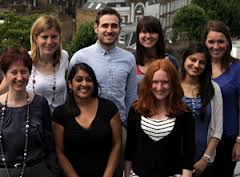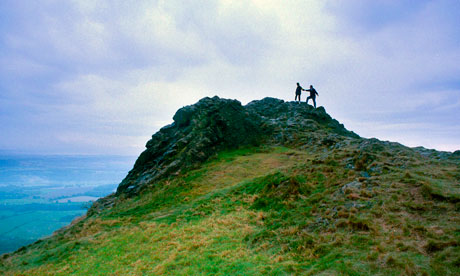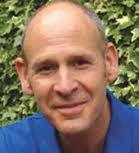
My friend, Andrew, never knew what to say to the orthodox Rabbi and the bearded Mullah.
As a businessman on the outskirts of London working with his local community and chamber of commerce, he met the two clerics regularly. The conversation was always difficult. His nightmare was that he might have to sit next to one of them through a whole meal.
He then became a student on one of my holistic spirituality courses. In these courses we help people understand the many different methods and styles for exploring spirituality; and we then teach certain core skills, such as stilling, presence and energy work, to help them deepen their experience.
There are many gateways to spiritual experience and these include, for example: being in landscape, conscious movement, caring for others, lovemaking, angels, arts, prayer, worship, ceremony, meditation, reading and so on.
There are also many different personal styles and these include: ecstatic, devotional, ascetic, meditative, earnest, wild, careful, adventurous, poetic, reclusive, communal and so on.
It is helpful to recognise that there are so many gateways and styles, because it makes us more welcoming of difference. It also helps us to explore and decide what approach might next be best for our own development.
At the heart of this is the understanding that, whichever gateway or style we use, it will take us into the same, core experience. We connect with spirit, with mystery, with God, with Tao, with the wonder and beauty of existence.
In these holistic courses we often contemplate this core spiritual experience and we notice how our feelings, sensations, moods, thoughts and consciousness change when we are connected with the flow and web of life.
Carefully noticing our sensations and altered states helps to bring us into a more conscious, regular and deeper spiritual practice. It makes our spiritual experience more real, less up in the head. Also, as we allow the connection to enter our bodies more fully, we embed powerful feelings of wellbeing. This is good for our health. It is also good for those around us as we become more benevolent and healing.
The Real Conversation Begins
But back to Andrew, the Rabbi and the Mullah. Over several months, Andrew explored this holistic approach to spirituality. His focus now was on the spiritual experience we all share regardless of our beliefs, gateways and personality styles. For him, meditation was an especially good path, helping him to hang out in, sense and absorb his spiritual connection.
Then one day he came bubbling into a tutorial session.
‘I’ve had a fantastic experience with both the Rabbi and the Mullah,’ he told me. ‘I spent time with both of them and this time I knew how to guide the conversation. I chatted with the Rabbi about local politics for a while and then I enquired whether I could ask a question about his religious practice. The Rabbi was hesitant but agreed. I asked which part of his religious practice took him closest to God. And what it felt like for him. The Rabbi lit up at those questions and we began a friendly and meaningful conversation. Later I spent time with the Mullah and after some small talk I asked him the same questions. He, too, was happy to engage meaningfully with me.’
Hope in a Divided World
This is very hopeful in a world where religion is increasingly perceived as a destructive social dynamic. Recent research in Britain conducted by the Rowntree Foundation uncovered a widespread belief that faith in all its forms is intolerant, irrational and used to justify persecution.
Researchers asked 3,500 people what they considered to be the worst blights on modern society, updating a list drawn up 104 years ago by the Quaker, Joseph Rowntree. The dominant contemporary opinion is that religion is a ‘social evil’. One interviewee said, ‘Faith in supernatural phenomena inspires hatred and prejudice throughout the world, and is commonly used as justification for the persecution of women, gays and people who do not have faith.’
This is precisely where understanding the difference between religion and spirituality is so crucial. On the one side, religion is defined as a set of beliefs held by an organised section of society. On the other side, spirituality is about personal spiritual experience and the instinct to explore and understand it.
These two entities – religion and spirituality – can often seem to be in conflict. Week by week, religious leaders complain about the decadence of self-centred spirituality. Week by week, the spiritually ‘enlightened’ complain about the backwardness and violence of traditional religion.
Where religion and spirituality can truly meet, as shown by Andrew’s meetings with the Rabbi and the Mullah, is in humane and meaningful conversations about the actual spiritual experience. In these conversations people can share about their own raptures and changes of mood. They can begin to feel safe about their shared humanity and feel less anxious about different beliefs and cultures. They can enjoy enlightening and encouraging dialogues around our personal relationship with the mystery, harmony and awe of existence.
These wonderful conversations require, at least, four helpful dynamics.
First, we need to create rapport. For each of us, how we create rapport and safety will depend upon the situation and our own personality.
Second, we need patience.
Third, as I described in last month’s column, we also need a sense of lovingly and energetically ‘holding’ the situation.
Fourth, we need the generosity of spirit and courage to initiate the conversation. We have to cut through the usual social tensions and alienation, and take a risk in order to make a new friend. Incidentally, the word ‘courage’ comes from the two French words coeur rage – rage of the heart.
All my love,
William




